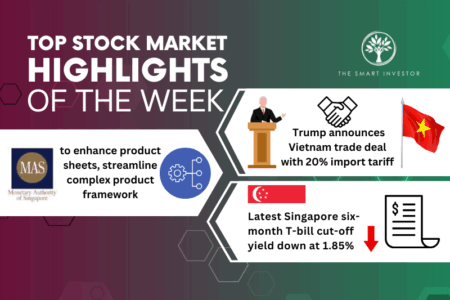How do you reduce risk while investing?
Depending on who you ask, you will get a different answer.
For my co-founder David Kuo, he prefers to receive cash, in the form of dividends, from the stocks he owns. That’s his number one rule: every stock he owns must pay a dividend. Period.
In David’s mind, if a company has excess cash that it doesn’t need, it should pay it out as a dividend.
An example would be Singapore Exchange (SGX: S68) which paid out around 60% of its profits for fiscal 2023 as a dividend. In fact, Singapore’s sole stock exchange operator has earmarked a 6.3% increase in dividends for its fiscal 2024.
Yet, despite the allure of dividends, it may not be enough for value investors.
Risk is in the eye of the beholder
For value investors, the inherent unpredictability of running a business is, by itself, a risk.
Simply said, if a business fails to generate enough cash, there will not be enough to go around to pay a dividend.
That’s a valid view.
Instead, value investors tend to focus on the assets a business owns such as buildings or other properties. Rather than rely on the business, they would stake the success of their investment on the value of these assets.
The trick, of course, is to pay less than what these assets are worth.
That’s where a value investor’s margin of safety lies. By focusing on getting a discount to this value, risk is reduced, in their eyes.
For instance, HongKong Land (SGX: H02) shares are trading at less than a quarter of its net asset value.
As the single largest property landlord in Hong Kong’s Central business district, the property development outfit has few peers when it comes to the value of its assets.
That said, there are downsides to this approach as well.
Every approach has its limitations
While the value investing approach sounds reasonable, there are ways where it can go wrong.
Going back to the HongKong Land example, the company has no intention of selling its core investment properties. As such, the stock has been trading below its net asset value since 2011.
Without a trigger to unlock its value, shares could continue to hover below this value for some time yet.
On the flipside, we could look for growth.
For me, the best protection you can get is from business growth.
Last week, I shared in Singapore’s Business Times an article titled “Margin of Safety: the Most Important Words in Investing” on how shares of US-based Mexican food chain Chipotle Mexican Grill (NYSE: CMG) rose by 32 times since 2007.
What’s the key driver behind this eye-popping growth?
During this period, Chipotle’s free cash flow rose from less than US$6.3 million to over US$1.25 billion. The value created from this operational performance cannot be understated.
Now, of course, cynics will say that finding such a stock is difficult.
And they will be right.
Experiencing multi-bagging returns is not something which happens overnight. For Chipotle, these returns were obtained over a 16-year period.
Here’s the most important thing: I am at my most comfortable when there is growth within a company. Value creation is the best protection against risk, in my view.
Get Smart: How do YOU reduce risk?
As an investor, you can pick and choose from all three methods above on how you can manage risk in your own collection of stocks.
Or you can adopt all three ways.
That’s not all.
At the Smart Investor, all our portfolios are formed using a base of stalwart-like companies, followed by a layer of growth and at the top, a small dash of speculative stocks which are less certain.
By using a staggered approach, it adds yet another layer of protection at the portfolio level.
The most important thing is to adopt an approach which suits you best.
There is no point in using methods or measures which you can’t sustain when the going gets tough. Ergo, the best approach is the one which you can implement consistently and successfully.
If you’re nervous, confused, or worried about buying your first stock, then our latest beginner’s guide to investing can help. It’s easy to read yet packed with valuable insights. Download it for free today, and buy your first stock in the next few hours. Click here to get started.
Follow us on Facebook and Telegram for the latest investing news and analyses!
Disclosure: Chin Hui Leong owns shares of Chipotle Mexican Grill, HongKong Land, and Singapore Exchange.





